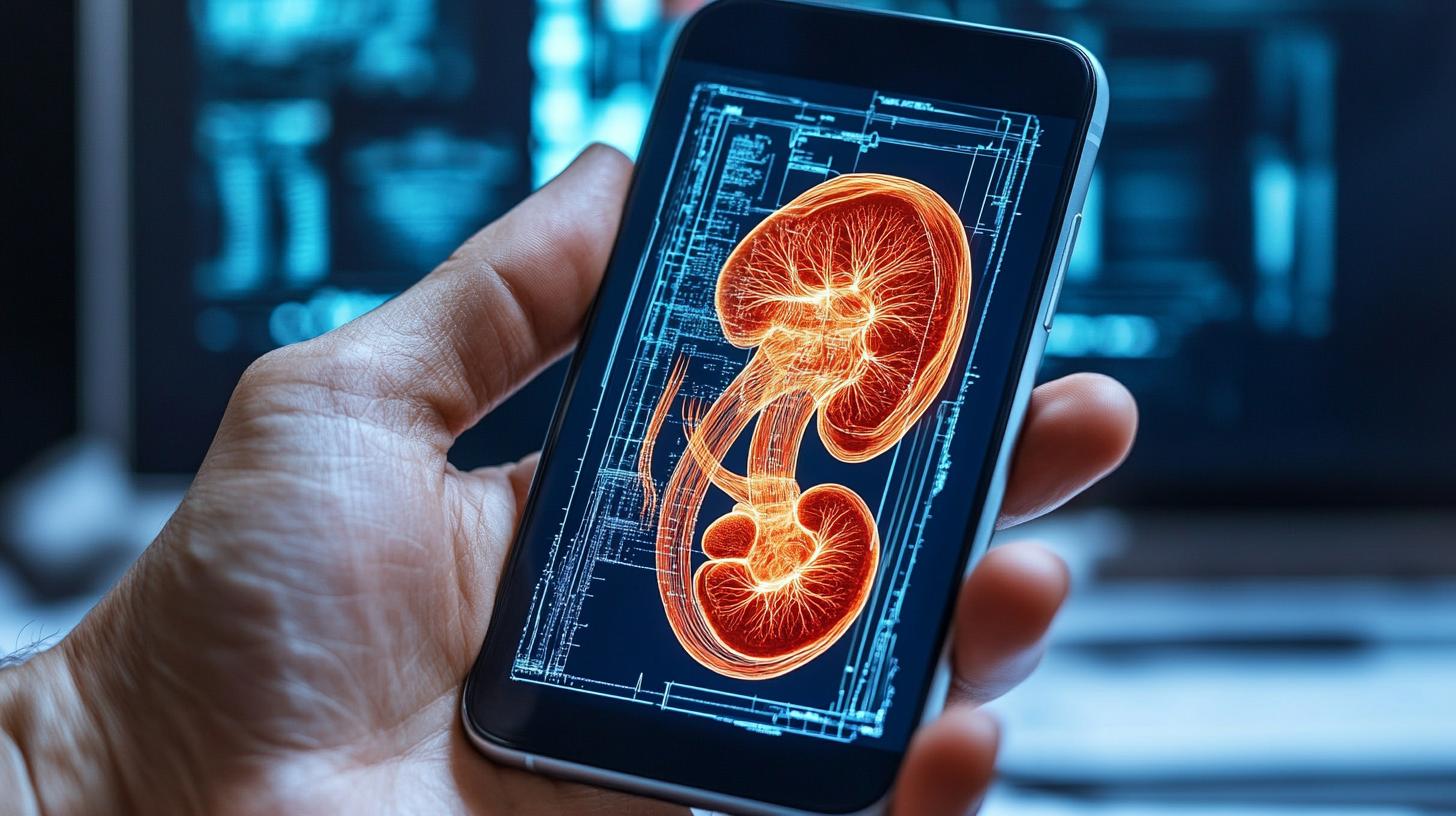Healthy.io has emerged as a trailblazer in digital health, turning everyday smartphone cameras into groundbreaking medical devices. During the American Society of Nephrology’s ‘Kidney Week’ in San Diego, the company unveiled remarkable findings about its Minuteful Kidney Test. Presented with help from Birdrock Laboratories, these findings highlight the test’s notable success in diagnosing kidney conditions right from your home.
The Minuteful Kidney Test is unique, being the first FDA-cleared test approved for at-home use to assess the urinary albumin-to-creatinine ratio (uACR). Its performance was measured against the esteemed Beckman Coulter AU 480 lab analyzer. An astonishing 96.4% sensitivity rate was achieved, surpassing the industry’s recommended 85% threshold for detecting chronic kidney disease (CKD) indicators.
Involving 615 participants from diverse socio-economic backgrounds, the study aimed to identify early signs of CKD. The traditional lab method diagnosed albuminuria in nearly 25% of the samples, while the Minuteful Kidney Test provided highly accurate results with ease and convenience.
Geoff Martin, CEO of Healthy.io, emphasized the importance of early intervention in tackling CKD, a disease affecting 37 million U.S. adults where nine out of ten are unaware of their condition. Despite being a critical diagnostic tool, widespread implementation of uACR testing remains limited. By bridging this gap, the Minuteful Kidney Test offers a promising solution, enabling prompt diagnosis and timely treatment, particularly in underserved communities.
With the rise of innovative home tests like Minuteful Kidney, the future of CKD management and patient empowerment is more optimistic than ever.
Revolutionizing the Future: Smartphones as Medical Devices and Their Impact on Human Health
In an era where technology and healthcare converge unimaginably, innovations like Healthy.io’s Minuteful Kidney Test demonstrate how far we’ve come. But beyond the headlines and accuracy rates, what does this mean for the future of humanity and technology?
The Smartphone’s Role in Modern Healthcare
Smartphones have become ubiquitous, with billions of people around the globe using them daily. While their function as communication devices is indispensable, their transformation into medical tools heralds a new frontier in personal health management. This shift promises greater accessibility, particularly in remote or underserved regions where traditional healthcare systems may struggle.
Advantages of Smartphone-Based Testing
1. Accessibility: Individuals from all walks of life, including those in remote areas, can access sophisticated testing without the need for traditional labs, democratizing health diagnostics.
2. Affordability: By leveraging technology already owned, smartphone-based tests can reduce costs associated with lab visits and healthcare overheads.
3. Early Detection and Personalized Care: Early diagnosis allows for timely intervention, potentially slowing down the progression of conditions like chronic kidney disease. It enables personalized healthcare approaches tailored to individual needs.
Potential Drawbacks
Despite its many advantages, this technological revolution does come with challenges:
1. Data Privacy Concerns: With medical data being stored and possibly shared through apps, data security becomes paramount. There’s always a risk that private health information could be compromised.
2. Tech Literacy: While many are familiar with smartphone basics, not everyone can easily navigate medical applications. This digital divide might leave certain populations behind.
3. Regulatory Hurdles: The ever-evolving nature of technology means keeping up with necessary regulations can delay the implementation of these innovative solutions.
Questions and Considerations
As we stand on the precipice of this health-tech revolution, it’s crucial to ask pertinent questions:
– Can smartphones replace traditional diagnostics? They likely won’t replace them entirely but will serve as a complementary tool that enhances the ability of healthcare providers to monitor and diagnose conditions more effectively.
– How will this affect healthcare providers? Medical professionals might see a shift towards more preventative care, focusing on managing conditions before they escalate, which could be a boon to healthcare systems worldwide.
Interesting Facts and Controversies
It’s intriguing to note how quickly healthcare acceptance has grown for these technologies. Yet, the involvement of major tech companies in healthcare raises ethical questions about data ownership and the role of profit in public health.
As with any groundbreaking technology, time will tell how these tests reshape healthcare landscapes. The opportunity for enhanced healthcare outcomes is immense, but the road to seamless integration remains fraught with challenges.
For more information about the integration of technology in health care, visit Healthcare IT News.
Ultimately, the fusion of healthcare and technology through devices we use every day might very well be a pivotal moment in human history, giving rise to an era where health management is no longer confined to hospital walls.







